ITU Council 2024 snapshot report

ITU Council 2024 Snapshot Report
Geneva, Switzerland, 4 to 14 June
The latest session of the Council of the International Telecommunication Union (ITU) reached key decisions on future space development, greening the digital industry, and global digital cooperation for a better future.
The annual governing body also approved ITU’s annual report, confirmed operational plans for the next four years, noted expert findings on timely issues; and strengthened preparations for upcoming ITU standardization, development, and plenipotentiary conferences.
The Council, composed of 48 Member States, acts as ITU’s governing body in the four-year cycle between plenipotentiary conferences. Council decisions keep ITU responsive to the needs of fast-evolving digital economies and societies worldwide, reinforcing the pursuit of universal connectivity and sustainable digital transformation for the good of all.
Let’s align digital inclusion with the pace of digital transformation and bring digital development to every corner of the planet, to harness the potential of radiocommunications to the fullest, to realize the true value of standards, to strike the right balance between the benefits and the risks of emerging technologies… This is the ITU the world needs and the ITU we all want.
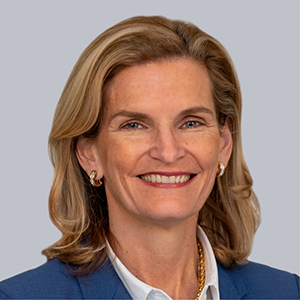 Doreen Bogdan-Martin
Doreen Bogdan-Martin
Key outcomes
State of the Union address by ITU Secretary-General
The world is at a pivotal moment of digital innovation, with countries racing to 5G and 6G, the tech industry making breakthroughs in quantum computing, and artificial intelligence (AI) pushing the boundaries of scientific progress. ITU is working to make the global digital transformation, safe sustainable, and inclusive of all, as ITU Secretary-General Doreen Bogdan-Martin outlined in her State of the Union address to ITU Council 2024.
ITU is actively engaged across the UN, rallying partners around crucial issues, and strengthening global engagement in the pursuit of inclusive connectivity. With over 1000 members, ITU is committed to connecting the world and rescuing the UN Sustainable Development Goals.
Within our own organization, we are implementing safe and responsible AI and enhancing our recruitment processes to rejuvenate ITU’s workforce. We are promoting youth involvement, and gender equality. We are striving for results-based management and have achieved a budgetary surplus through prudent fiscal management.
Annual Report 2024
The Council approved ITU’s latest annual report, spanning the period between May 2023 and April 2024. Despite global challenges, ITU stepped up its drive for universal connectivity and sustainable digital transformation, the overarching goals in the 2024-2027 strategic plan. This included mobilizing pledges through the Partner2Connect Digital Coalition, as well as continuing to strengthen radio-frequency management, set technical standards, and promote digital development for all. Digital
access and affordability challenges persist, especially in low-income countries. ITU emphasizes digital inclusion, gender equality, and youth involvement in its initiatives, striving to ensure digital transformation benefits everyone and leaves no one behind.

UN Secretary-General addresses Council
The UN Secretary-General lauded ITU’s contributions to global standards, connectivity, and digital skills. He emphasized the need to bridge the digital divide with safe, equitable, and affordable Internet access for all. While warning of the risks posed by artificial intelligence, he praised ITU’s AI for Good platform. He called for regular policy dialogues, harmonized standards, and support for developing countries. Noting the upcoming Summit of the Future and expectations for a Global Digital Compact, he called for enhanced cooperation and support for an open, safe, and sustainable digital future, ensuring technology advances the greater good. Addressing the Council as part of a historic visit to ITU headquarters on 12 June, the UN Secretary-General commended the whole organization for “placing universal connectivity and sustainable digital transformation at the heart of your strategy.”
Check out other ITU Council snapshot reports.
Today, nearly one-third of the world’s population remains unconnected, locked out of the digital revolution. Bridging that divide is not only an economic necessity, but a moral and humanitarian imperative – and fundamental for achieving the Sustainable Development Goals.
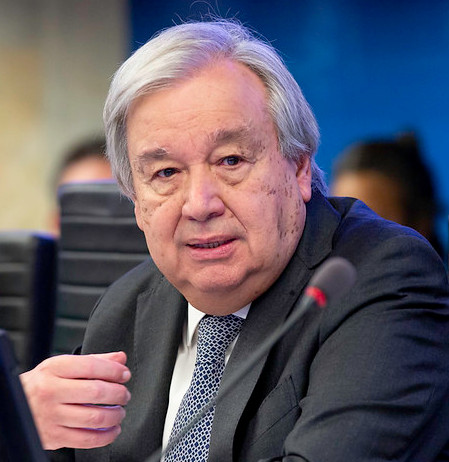 António Guterres
António Guterres
WSIS+20 Report
The World Summit on the Information Society (WSIS) is a dynamic process that adapts to technology changes. The ITU Council endorsed the ongoing WSIS Forum as a global platform facilitating the implementation of WSIS Action Lines as a complement to the UN Sustainable Development Goals. ITU’s contributions have been key in promoting inclusive international cooperation to drive sustainable digital development for all. ITU maintains the WSIS Stocktaking Database and organizes the annual WSIS Prizes contest. ITU remains committed to the WSIS multi-stakeholder community for the upcoming WSIS+20 Review and beyond.
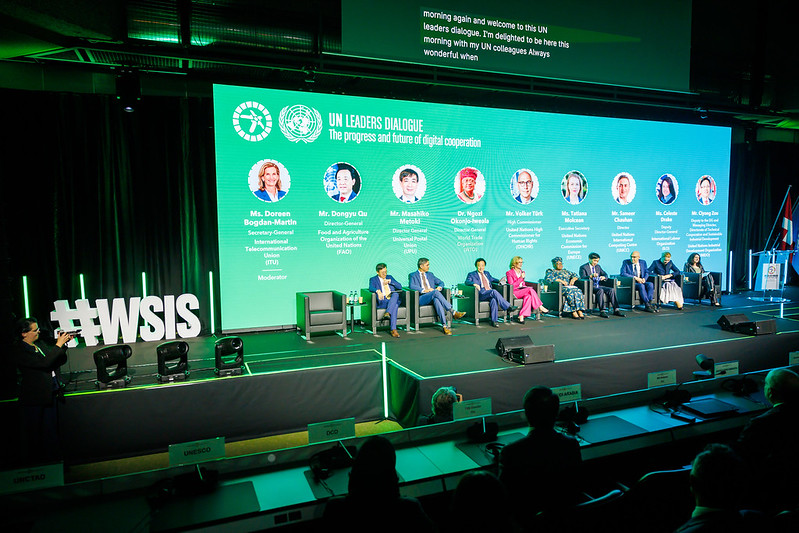
Space 2030 update
The Council noted the ITU Secretary-General’s report on the implementation of the “Space2030” Agenda, which aims to enhance the use of space science and technology for sustainable development. The report highlights ITU’s role in achieving Space 2030 objectives, particularly in providing access to the radio-frequency spectrum and satellite orbits. The report also outlines recent and planned ITU activities related to space technologies and applications.
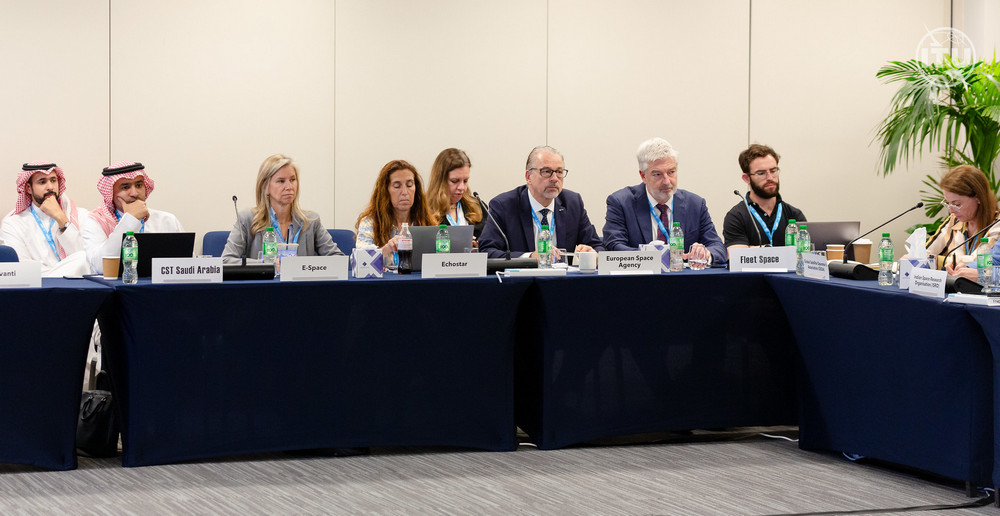
Advancing Green Digital Action
The Council emphasized the need to align rapid global digital development with environmental goals, adopting a new resolution on facilitating the contribution of information and communication technologies (ICTs) to sustainability and climate action. While technology uptake can reduce greenhouse gas emissions across multiple sectors, efforts are needed to reduce the greenhouse gas emissions stemming from digital technologies themselves. ITU will continue mobilizing partnerships, promoting innovative solutions, supporting developing countries with capacity building, and building knowledge to strengthen the industry’s contribution to global sustainability and climate action.
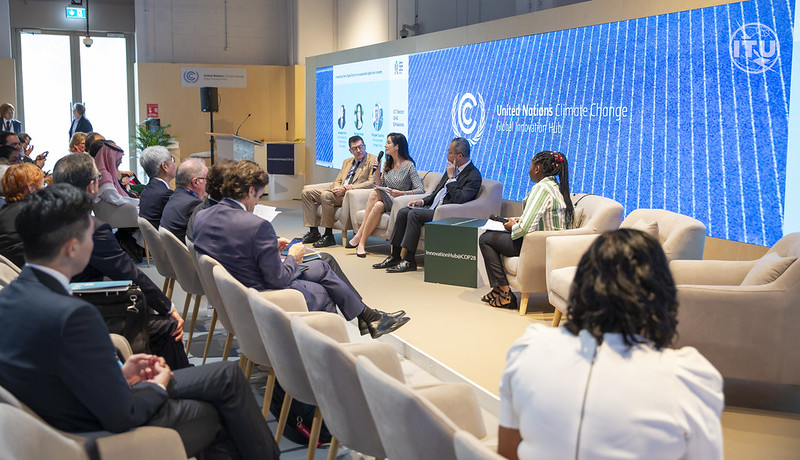
Engagement on the Global Digital Compact
Member States asked ITU to continue engaging closely in the Global Digital Compact (GDC) process. The upcoming UN Summit of the Future will convene world leaders to forge a new international consensus on delivering a better present and safeguarding the future. The outcome will be an action-oriented document known as the Pact for the Future, currently under negotiation among UN Member States. The GDC forms an integral component, highlighting the transformative power of digital innovation in driving sustainable development. Multi-stakeholder partnerships and processes led by ITU can greatly enhance GDC implementation, ensuring the digital transformation benefits everyone and leaves no one behind.
Existing digital cooperation platforms and promoting strategic, cohesive approaches, can also help in harnessing new and emerging technologies for humanity’s collective benefit. For instance, ITU’s AI for Good summit provides a key forum for global dialogue on artificial intelligence (AI), while the WSIS+20 review process and the ITU-led UN Group on the Information Society provide ready-made GDC follow-up mechanisms.
A unified approach – with ITU’s existing processes incorporated constructively within the GDC – can help greatly to shape a better digital future, Council discussions suggested.
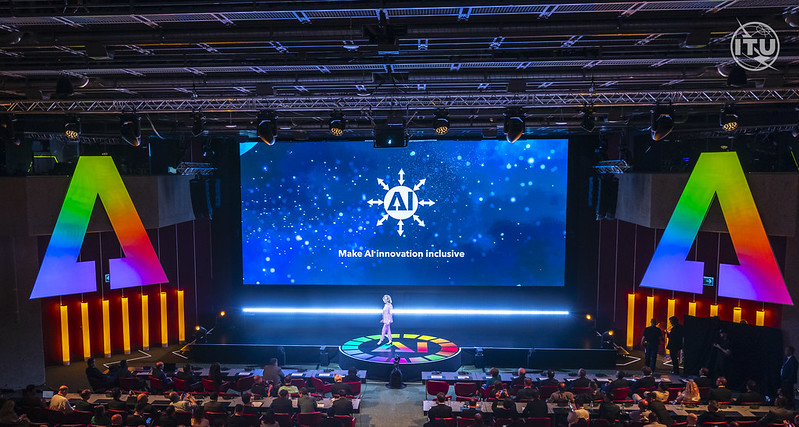
Chair-designate nominated for PP-26
Qatar, the host country of the next ITU Plenipotentiary Conference (PP-26), nominated Eng. Ahmad Abdulla AlMuslemani, President of the Communications Regulatory Authority, as Chair-designate for the conference. The Plenipotentiary Conference, involving all ITU Member States, is ITU’s highest decision-making body. PP-26 will take place in Doha, Qatar, from 9 to 27 November 2026.
“ITU’s next Plenipotentiary Conference in Qatar will set the stage for a digital future where human-centred technology drives progress and inclusion for everyone,” said ITU Secretary-General Doreen Bogdan-Martin. “Under Eng. Ahmad Abdulla AlMuslemani’s leadership, I’m confident that PP-26 will make great strides in advancing ITU’s mission to connect the world meaningfully and sustainably.”
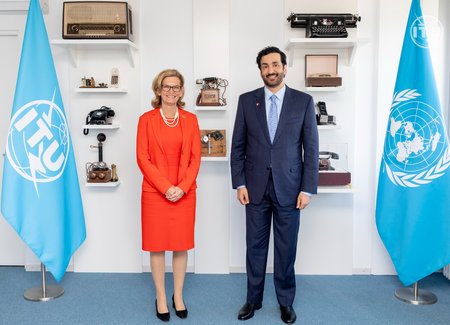
Convening on collaborative standards: WTSA-24
The Council noted ongoing preparations for the World Telecommunication Standardization Assembly (WTSA-24), which brings this governing conference for ITU standardization work to Asia for the first time. ITU members will meet for WTSA-24 in New Delhi, India between 15 and 24 October. Digital innovation in India will be on show at AI for Good Impact India, the first in a new event series, as well as at the Indian Mobile Congress and a range of WTSA-24 side events. WTSA-24 will be preceded by the ITU Global Standards Symposium on 14 October. 14 October is also the date for the annual celebration of World Standards Day.
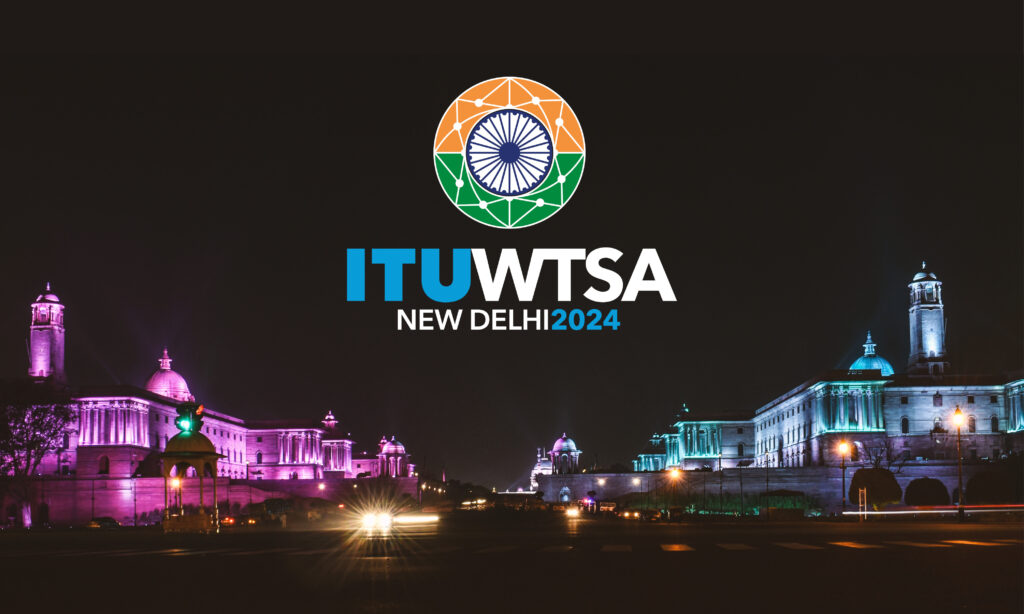
Digital development leaving no one behind: WTDC-25
The next World Telecommunication Development Conference (WTDC) takes place in 2025. The Council approved a proposal to host the conference in Baku from 17 to 28 November 2025. A consultation with ITU Member States will be launched to secure their agreement. The secretariat will assess venues in Baku and report to the next Council session.
Policy exchange for an inclusive digital future: WTPF-26
The World Telecommunication/ICT Policy Forum (WTPF) is a high-level international event where ITU members and other stakeholders come together to exchange views on the key policy issues arising from today’s fast-changing information and communication technology (ICT) environment.
The Council confirmed the theme for 2026 as: Accelerating an inclusive, sustainable, resilient, and innovative digital future.
In this regard, WTPF-26 will discuss opportunities, challenges, and policies to address:
- Bridging digital divides, particularly in relation to gender and age, as well as skills and connectivity.
- Green digital transformation – climate change and environmental sustainability.
- Resilience of telecommunication and ICTs.
- Space connectivity.
- Strengthening ICT-centric innovation ecosystems and entrepreneurship.
Strengthening ITU’s regional presence
The Council noted a report on the strengthening of ITU’s regional presence and implementation activities via field offices. ITU held six Regional Development Forums in 2023 and 2024, attracting over 1500 stakeholders worldwide. ITU’s Regional and Area Offices are coordinating with ITU’s Telecommunication Development Bureau in implementing the Kigali Action Plan, which charts a course for digital development closely aligned with the UN 2030 Agenda.
Council decisions keep ITU responsive to the needs of fast-evolving digital economies and societies worldwide, reinforcing the pursuit of universal connectivity and sustainable digital transformation for the good of all.
Youth engagement
The Council noted the Secretary-General’s report on “Youth engagement and initiatives at ITU,” highlighting progress in the implementation of ITU Resolution 198 (Rev. Bucharest, 2022) on empowerment of youth through telecommunication/ICTs. Member States are encouraged to help fund ITU’s recently established Young Professionals Programme. Discussions focused on engaging and empowering young people and amplifying their voices.
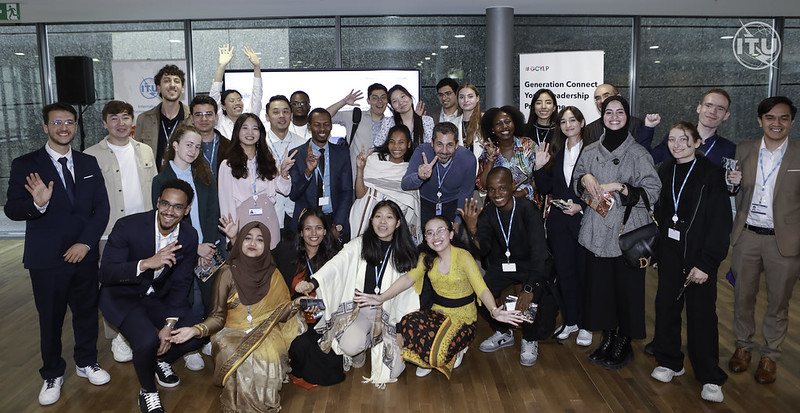
Operational plan
The ITU Council approved a four-year rolling operational plan for 2025-2028. The plan, with 43 specific outputs, is consistent with the financial limits set by the ITU Plenipotentiary Conference and follows the structure of the 2024-2027 strategic and financial plans. It provides a detailed analysis for 2025 and a condensed one for subsequent years. The plan includes cost breakdowns by thematic priority and output, and allocation of costs in relation to Sustainable Development Goals and in line with earlier Council decisions on cost-allocation methodology.
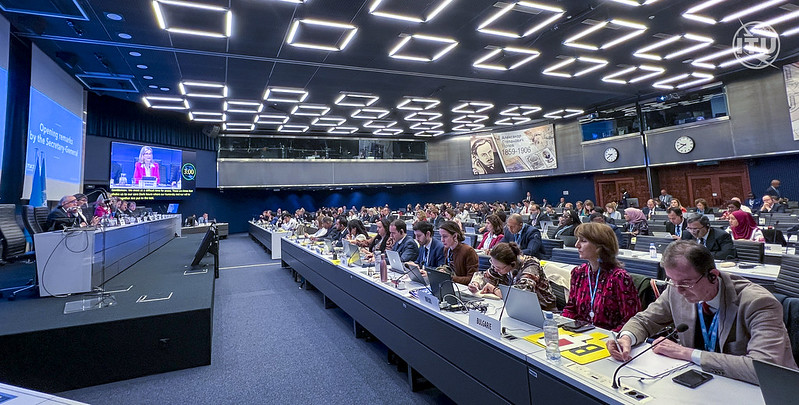
“So what we are trying to do as Council is to make sure that ITU can shine as an organization – become a bigger star in the system.”
 Frédéric Sauvage
Frédéric Sauvage
Transformation roadmap
The Council endorsed ITU’s ongoing transformation to achieve organizational excellence. Key focus areas in the ITU transformation roadmap are People and Culture, Resource Optimization, Systems Processes and Tools, and Governance. Several initiatives have been implemented, including HR transformation, process optimization, increased use of machine translation, and modernization of the Identity and Access Management system. The transformation will be coordinated by a dedicated team and governed by the Secretary-General, Deputy Secretary-General, and an intersectoral Transformation Group. Progress will be measured using corporate performance indicators. Additional funding of CHF 1,354,000 was approved to support specific transformation initiatives.
Council 2024 by the numbers
417
Delegates attended physically.
81
delegates attended via Zoom platform.
48
Council Member States were represented physically.
39%
women participants on site.
46%
women participants virtually.
2
Regional Telecommunication Organizations participated
28
Council Observer Member States were represented on site.
3
Council Observer Member States were represented virtually.
* The State of Palestine (ITU Res. 99) was also represented on site.
Internal oversight charter
The ITU Council approved an internal oversight charter for the ITU Oversight Unit, which provides independent audit, investigation, and evaluation services. The charter sets forth the purpose, scope, definitions, independence, authority, responsibilities, and applicable standards for the unit’s oversight functions. Thus, it formalizes ITU’s commitment to transparency and accountability, strengthens risk management, enhances internal controls, governance, and compliance, and ensures due process in case of reported misconduct. It also provides a methodology to assess the effectiveness and impact of programmes, policies, and interventions across the organization.
Status of ITU’s building project
ITU is committed to its Geneva headquarters premises project and has developed viable options to ensure the new building fits within the approved budget and will meet the needs of ITU’s membership and staff. This fit-for-future building will form part of an ITU campus at the heart of International Geneva. The Council called for establishing a cohesive long-term vision for the whole ITU Geneva campus.
Multilingualism
Council discussions reconfirmed the commitment to multilingualism in the ITU’s work. For the first time, Member States adopted a guide on current and future practices on multilingualism at ITU, with accompanying staff guidelines on the use of machine translation. Delegates welcomed the increasing use of new technologies in the provision of language services – in particular, the implementation of the ITU Translate suite of AI-powered tools on web pages and documents to supplement and complement the work of professional translators and increase the reach of ITU content. The Council also updated resolutions on its working group on the equal use of ITU’s six languages and on the work of the ITU Coordination Committee on Terminology to harmonize terminology and definitions within ITU.
Gender equality
The ITU Council called for the continuation and strengthening of ITU’s Gender Equality programme, which focuses on addressing the gender digital divide and institutional gender mainstreaming. This includes targeted initiatives like the ITU Gender Dashboard, Girls in ICT Day, EQUALS in Tech, Her CyberTracks, and promotion of tech as a driver of women’s economic opportunity. Institutional gender mainstreaming efforts include equal representation of women staff and delegates, organizational culture, capacity assessment and development, and gender architecture and allocation of financial resources. ITU’s Gender Equality and Mainstreaming (GEM) plan aligns with the UN System-wide Action Plan on Gender Equality and the Empowerment of Women (UN-SWAP).
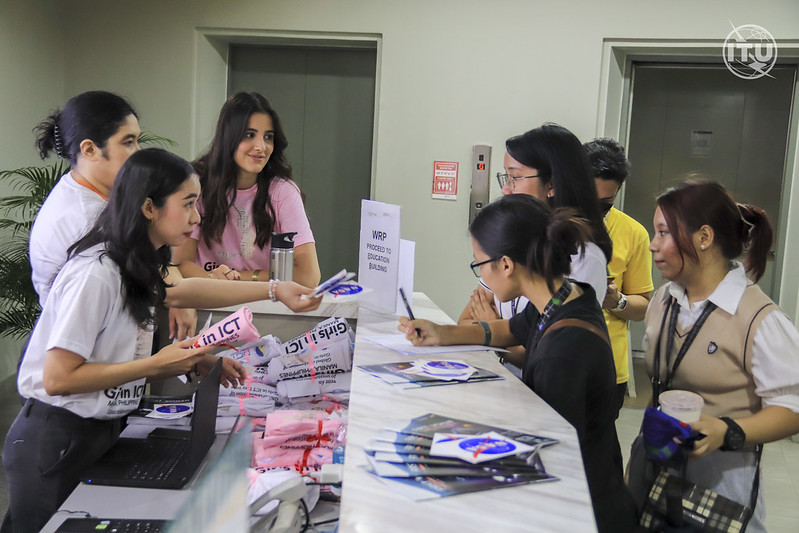
Support for Palestine
A new Resolution was adopted for ITU to continue assisting in the rebuilding of telecommunication networks in Palestine. ITU support initiated under previous resolutions has included connecting 76 schools in the West Bank to the Internet through the ITU-UNICEF Giga Accelerate programme. ITU has also provided special technical assistance to Palestine, including developing a national strategy for the transition to Internet Protocol version 6 (IPv6) and establishing a Palestinian national IPv6 task force. ITU has also assisted in developing a National Emergency Telecommunications Plan for Palestine and supported the establishment of the Palestinian Computer Incident Response Team. Furthermore, ITU’s Radiocommunication Bureau has reviewed and recommended revisions to Palestine’s National Frequency Allocations and Applications. The World Radiocommunication Conference approved a resolution empowering Palestine to obtain necessary frequencies for modern mobile telecommunication networks. The Secretary-General and the Director of the Radiocommunication Bureau have promoted dialogue between Israel and Palestine to implement these resolutions.
Support for Ukraine
ITU has assisted in rebuilding Ukraine’s telecommunication sector since 2022. This support includes monitoring and reporting, coordination mechanisms, technical assistance, resource mobilization, and capacity-building activities. The war’s impact on the telecommunications and digital assets is estimated at USD 2.1 billion in damage, USD 2.27 billion in losses, and USD 4.67 billion in other reconstruction needs. ITU has developed project proposals for the restoration of 10 critical broadcasting stations, affecting over 5.1 million people. To fully rehabilitate these stations, the international community is invited to pledge USD 12 million. ITU will continue to focus on rehabilitation of the other 30 stations, out of a total of 40 affected by the war.
ITU has also proposed capacity building to equip Ukrainian officials with required skills and knowledge. ITU continues encouraging its Member States and partners to pledge financial and other support tailored to Ukraine’s needs. Overall commitments amount to over USD 740 million. All stakeholders are invited to support global cooperation and activities in response to ITU Resolution 1408 on assistance and support to Ukraine.
Council Working Groups and Expert Groups
The ITU Council confirmed the dates for its sessions in 2025 and 2026, along with dates for Council Working Group and Expert Group clusters over the same period. It also proposed dates for 2027, including a first set of cluster meetings between 18 and 30 January, a Council session between 8 and 18 June, and another set of cluster meetings between 30 August and 10 September 2027.
Check out other ITU Council snapshot reports.
Media
Ms Doreen Bogdan‑Martin,
ITU Secretary-General
Chair, ITU Council 2024
Subscribe to the ITU Newsletter
Get the latest on global trends in radiocommunication, technology standardization and digital development delivered to your inbox.